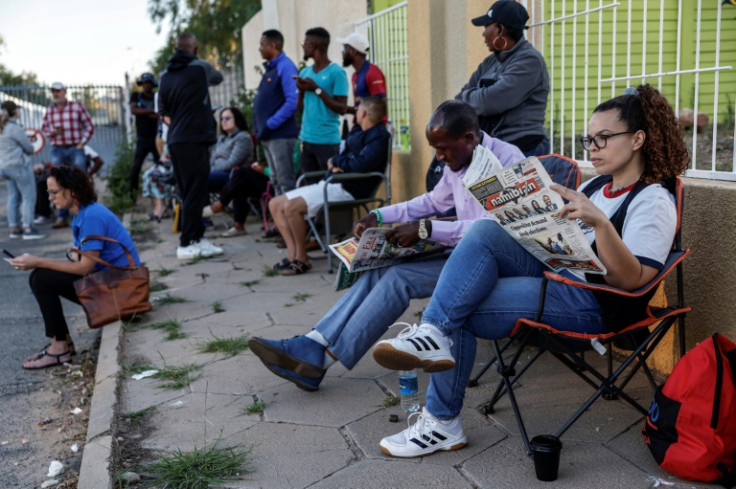
Namibians seized their second chance to vote Friday after elections were extended following logistic and technical failings that prevented many from casting their ballots two days ago, angering opposition parties aiming to loosen the ruling SWAPO party's 34-year grip on power.
Long delays at polling stations Wednesday left many of the 1.5 million registered voters queueing for up to 12 hours or even abandoning the wait in polling that was labelled a "sham" by the opposition.
The chaos sent tensions soaring in the historically stable and peaceful southern African nation, where the ruling South West Africa People's Organisation (SWAPO) party is facing its toughest challenge yet as disenchanted younger voters across the region reject traditionally dominant liberation-era parties.
"In most regions, some voters abandoned queues due to the slow pace caused by repeated technical failures," the African Centre for Governance observer mission said Thursday.
Problems that led to the delays included the overheating of electronic tablets used to register voters and shortages of ballot papers, it said. In some regions, extreme heat exacerbated the frustrations and led voters to give up.
The Namibian election authority (ECN) had created confusion by poorly communicating its decision to allow some polling stations to remain open throughout the night while others began counting ballots, the African Union observers said.
Around 30 people with placards reading "Namibian elections are not free and fair" and "Fire ECN" demonstrated in front of the hotel where the observers met the media.
"We condemn the election process, we reject it," said Ivan Skrywer, coordinator of the Landless People's Movement. "We don't trust these observer missions anymore," he added. "Look at their composition, it's government officials, retired politicians."
The Independent Patriots for Change (IPC) party, among the strongest challengers to SWAPO, was among the parties that called Thursday for a halt in the electoral process, saying the election authority may have been "deliberately trying to frustrate voters from casting their vote."
With around 42 percent of registered voters aged under 35, opposition parties may benefit from frustration over high youth unemployment and enduring inequalities, and the emergence of a generation born after independence in 1990 that does not feel loyal to SWAPO.
Its candidate, vice-president Netumbo Nandi-Ndaitwah could become the first woman to lead the country if elected but is facing an unprecedented second-round run-off vote, with the IPC's candidate, former dentist and lawyer Panduleni Itula, a leading rival.
Opposition parties were scheduled to meet on Friday and issue a joint statement about the process, according to the IPC's Christine Aochamus.
In the capital Windhoek, only one polling station was picked to reopen Friday -- with Namibians able to vote at any voting station -- and about 60 people showed up as voting started.
Kluivert Muuondjo, a 21-year-old student, said he had arrived at 4:30 am after waiting in line until 11:00 pm on Wednesday before having to leave as he had exams the next day.
"Everyone will have the chance to vote," he said, worried though that voters would flock to the polling station, again causing delays.
"To open only one place in Khomas (the region of which the capital is part of) is absurd," said voter Ensley Engermund, who also said he couldn't vote on Wednesday because of long queues despite trying four different polling stations.
"Only 1.5 millions voters are registered and we get this chaos?" asked the 49-year-old security agent. "It was to get people frustrated."









